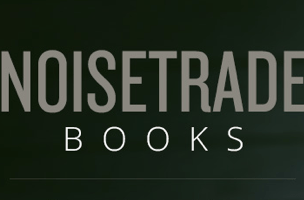
If you searched for “crisis in publishing,” you could spend the rest of your life, quite unhappily I might add, reading predictions of publishing’s impending demise. I don’t have anything at stake with the big New York City publishing scene, but I do know a thing or two about Christian publishing.
Perhaps the word “crisis” goes too far. The more measured, less “link-bait-inclined” headline I’ve chosen is “challenges” (My thanks to the three of you who persevered to click through.) Mind you, these are some big challenges. The challenges are especially pressing for authors who aren’t pastors of mega-churches or who can’t afford a $250,000 marketing campaign to make a series of purchases that land their books on the New York Times bestseller list.
Yes, there are more Christian authors than that one former pastor who have done the latter.
Adding to the urgency of these challenges, I’ve seen quite a few of my talented friends involved in Christian publishing take big steps back either to rest or to reevaluate what they’re doing. Some have bowed out, some have made big changes to their goals and daily practices. Some are soldiering on in Christian publishing while harboring some big misgivings—hardly believing that others aren’t putting up more red flags.
From what I know about editors and publicists in the Christian publishing business, most are aware that the challenges and vices of their world are more or less open secrets—especially when the word “business” comes into play with anything that’s supposed to be “Christian.” By and large they all want to fix problems rather than perpetuate them. However, it’s nearly impossible to create any kind of meaningful momentum in a climate where many editors and publicists could be laid off at any moment and publishing companies are always reorganizing and shifting. The last thing I want to do is point fingers or create an us vs. them climate.
From my limited vantage point, there are three major challenges that everyone involved in Christian publishing has to deal with. If you’re new to Christian publishing, you’ll most likely be shocked and overwhelmed by these three challenges at one point or another—so let’s just get the shock over with now. If you’re trying to write Christian books for the long term, I think you’ll have to deal with these challenges sooner than later—that is, if these challenges don’t prevent you from landing a book deal.
Most importantly, I’d like to talk about them and hopefully arrive at some solutions. I have no personal vendettas here… OK, maybe I have a few teeny, tiny grudges… but I’m not out to attack anyone or any company. This is all stuff that tons of people talk about over coffee at Christian conferences and publishing events. Wouldn’t it be nice if we could actually sort some of them out a bit?
What is a Christian book?
The biggest hurdle Christian authors face today is the “Christian book” category itself. What exactly should Christian authors write about if we’re trying to write books about our faith for a “Christian” publisher?
Seriously, just take a look at this little overview of the 2014 Christian bestsellers. We have diet books, relationship books, money-management books, and several crazy town end times prophecy books. I have no bone to pick with anyone who wants to read these books—OK, maybe I’ve shown my cards on the whole end times prophecy thing. But really… I’m just asking, what exactly makes a book “Christian”?
“Christian living” has long been the catchall category for books about prayer, faith, spirituality, and Bible study. There are subsets for church books, theology books, prayer, and fiction. However, the distribution of books into these categories just flat out sucks sometimes. I mean, for the love, people… Heaven Is for Real and Four Blood Moons are listed on Amazon as “theology” books. We may as well list Hippos Go Berserk under Wisdom Literature—you can’t deny the parallels with Ecclesiastes.
Most importantly, quite a few of the best-selling Christian authors getting the biggest advances at the largest publishers aren’t necessarily even writing books with any discernable Christian or faith-based element beyond the fact that they are Christians themselves.
I’m not here to judge anyone. We may need self help/healthy living books at times, and it doesn’t hurt to read a book about living a better life, organizing your junk, or whatever. I understand that these books have a broad appeal, sell well, and keep the lights on at publishers. The same goes for the ubiquitous Amish fiction genre.
However, based on some of the books that are acquired and that become bestsellers, Christian publishing is having a bit of an identity crisis. I don’t know about you, but I spend my time trying to figure out the challenges and needs of Christians and then developing book ideas that address them from the perspective of the Christian faith. That at least strikes me as the point of Christian publishing—you know, as opposed to using the Bible to speculate about the end times, sowing fear and confusion, and then cashing in by playing to the fears American culture attempts to medicate through entertainment and sleeping pills.
Publishers may not like me, my writing, or my ideas, but so long as I’m presenting solutions to problems from a Christian perspective, I think I’m at least faithful to the mission of what Christian publishing is all about.
Christian books should resemble the actions and teachings of Christ.
When we see books that are essentially self-help manuals sitting atop the bestseller list alongside Christian bestsellers like 1,000 Gifts or the latest N.T. Wright book (i.e. books that are actually “Christian” in content, mission, etc.), you can’t blame Christian authors for getting a bit confused.
What exactly should we pitch to editors?
What do editors want?
One caveat: if your publisher is super-duper reformed, you just need to find a cool metaphor or analogy for explaining what the Gospel REALLY is. For the rest of us, it’s not just a crapshoot. It’s a huge mess where some big publishing deals are going to authors, who are very nice and good Christian people, who aren’t necessarily writing faith-based books.
I don’t know what the best solution is. I don’t hold any grudges against publishers or authors for this confusing state of affairs. I trust that these are complex, difficult situations. Put most charitably, it’s all quite confusing. Perhaps it would help if some publishers just created an imprint or line of books that are specifically dedicated to “better living” or take more of a self-help angle. We could at least have honest conversations about what a publisher is looking for. Then Christian authors who are writing about specifically Christian topics will have a better idea of their odds of being acquired.
While publishers put together little lists of “topics” they’re currently interested in, I can’t help thinking there’s a “nudge, nudge, wink, wink” element going on even if their list focuses on stuff like prayer or discipleship. I mean, sure they’ll publish a book about prayer if the author has the credentials, platform, and, preferably, thousands of church members to help catapult sales, but if a simple living recipe book about losing weight and saving your marriage while decluttering your home and raising happy kids came along by a Christian author with a huge cooking blog platform, they won’t say no.
Fragmented Authors and Publishers Aren’t Working Together
The majority of authors I know are struggling to find readers for their books, and the majority of their books are really good or at least ideal for a particular niche of readers. We’re all on our own little islands with our various publishers trying to find new readers, asking each other for favors, and dreading a few authors who always ask for a bazillion favors.
I have personally not seen evidence that Christian publishers recognize how authors at different publishers could work together to serve the same market and reach more readers. Publicists are already shoving authors out the door to network and beg for favors. Why can’t publishers join their authors in becoming partners in building these networks among authors in order to strengthen promotions? This could be as simple as sending a few emails back and forth to coordinate a price promotion, book release, or special event.
I don’t mean one of two publicists here and there. Some publicists already get this. You can always find some people who are willing to think outside the box. The problem is that this has yet to become an assumed industry standard. I mean, gosh, some publicists can’t be talked into running eBook promotions yet, let alone partnering with other publishers to help an eBook promotion reach a wider audience!
When I’ve attempted to set up book promotions with the authors I know, the promotions didn’t happen because we couldn’t get certain publicists to respond to our emails in a timely fashion. I think we had a few really great opportunities to network together, and some publicists I spoke to really loved this idea. However, we didn’t get the critical mass to pull it off because some emails weren’t returned.
This kind of thing is maddening to authors. We’ve gone to publishing conferences where publishing experts lecture us on authors taking the initiative, doing their own marketing, and moving away from the days of “just writing books.” Seriously, if you work at a publisher, you need to know this: authors are lectured over and over again about not being lazy and being proactive and doing our marketing. OK? We hear this all of the time. So we try working together to promote our work, and it doesn’t happen because someone at a publisher can’t answer an email.
Every author I know sees the need to work with fellow authors, and some have a long history of doing so. It’s time for publishers to start doing the same or to at least take a more active role in helping us do what they’re telling us to do. If you have a group of authors with intersecting books who write for different publishers, there’s no reason why they can’t work together to organize a group promotion for the same week. A few emails and two months of lead time is all you need to set this up. This is low hanging fruit, folks.
Authors are always being challenged to stop viewing each other as the competition. Most of us are willing to work together to help each other succeed. If our publishers joined us in this as partners with the same vision of cooperation, we would all have a lot to gain.
No One Can Agree on Book Marketing
Based on the conversations I’ve had with authors and publicists at a variety of publishers, there really isn’t a strong consensus on how to market a book. There are, however, a lot of strong opinions. These opinions are so strong, in fact, that some hopeful authors have opted to not pursue book publishing because they don’t want to blog or be a public speaker or deal with the insanity that is Twitter.
#NotAllAuthorsLikeTwitter
However, in each case these authors have merely run into people who have strong opinions about Twitter or public speaking or blogging. There are other professionals with equally strong credentials and comparable experience who think Twitter is ineffective for selling books and public speaking does jack squat for selling books. Some publishers rely on ads and radio interviews, others rely on eBook promotions and reviews, and still others look to blogs, email lists, and social media strategies.
How crazy is this? One publisher rejected a proposal because I didn’t have 10,000 Twitter followers, while another said my platform was strong based on my email list since Twitter didn’t matter. Another friend was told she had to make a YouTube video advertising her book, while another was told his deal hinged on public speaking engagements.
I don’t hold anything against publishers and publicists for this range of opinion. I suspect that particular marketing tactics work based on the author, the book, and the audience. There isn’t a single “correct” way to release a book. In fact, we run into problems when publicists get hooked to particular promotion strategies that simply don’t work for a specific author or a particular book.
The best conversation I’ve ever had with a publicist involved her telling me all of the strategies that wouldn’t work for my book. It was extremely helpful and refreshing.
If you’re getting into Christian publishing, here’s the best thing I can tell you about marketing: you need a plan, but you don’t have to copy every bestselling author. If you hate blogging, try podcasting. I have a friend who told me that her podcast did a lot more to sell her books, even if conventional wisdom says that podcasts don’t sell books.
If you like writing letters, I have good news for you. It’s fun to send regular email newsletters! You just need to figure out how to get people to subscribe so that you have a strong list for your book’s release.
If you have deep, pithy thoughts you enjoy sharing throughout the day, then you’ll probably crush it on Twitter.
If you like starting engaging conversations, then Facebook is certainly for you.
My biggest mistake as an author was trying to imitate authors who are very different people and who write very different books from my own. I would have been far better served to be honest about what I like to do and what I hate to do and then imitating authors based on that.
There’s always a place in book marketing for holding your nose and diving into promotion tactics that you find draining or annoying. There are certain activities that will pay off, even if you don’t like them.
However, there are too many authors who go into marketing conference calls without a clear sense of the most effective ways they as authors can help promote their specific books. Either out of ignorance or an aversion to marketing, they just defer to publicists, some of whom may have strong opinions about marketing that don’t necessarily line up with an author’s talents or the book’s message.
While authors shouldn’t resist every suggestion from a publicist, I’ve talked to enough publicists to appreciate the range of opinions out there. If you want people to read your book and you don’t want to be curled up in the fetal position during release week, take some time to review your options for book publicity and then sort out which ones appeal to you. By the time you sit down to discuss marketing plans, come prepared to listen, but also make a list of ideas and suggestions that best reflect ways you want to promote your book.
Is Christian Publishing in Crisis?
Answering that question definitively is way above my head. However, there’s no denying that Christian writers hoping to publish with one of the top 15-20 Christian publishers will face these challenges related to the identity of a Christian book, working with authors at different publishers, and marketing their books.
In the midst of this turmoil, we’ll most likely see more small publishers and vanity publishers reaching out to ambitious authors who may not quite know what they’re getting into. Middlemen are also rising up, some with more credentials than others, promising classes and coaching on how to get published. As more bloggers and authors see the ease of publishing with Scrivener and Kindle Direct, they’ll begin migrating toward Indie publishing since their profit margins will be higher per sale and there are many top notch tools that make it easy to publish on your own these days.
It’s wonderful and terrible. The opportunities are breathtaking, but for every chance to leap forward, there are twice as many ways things can fall apart.
Every author I know has shared his/her shock at the pain of the publishing experience. There certainly are positive experiences too—or else no one would even bother trying!
I could be completely wrong about all three points here. It would be nice if I was, in fact. However, it’s much easier to take a punch if you’re ready for it. It can be significantly harder to stand up and prepare for the next punch if you aren’t expecting the first. If you want to get into Christian publishing, I guarantee that the punches are coming. Brace yourselves… Christian publishing is changing.
What did I miss? Are there challenges I’ve overlooked?
If you still want to give book publishing a shot after my rants,
Download my book Write without Crushing Your Soul: Sustainable Publishing and Freelancing.





